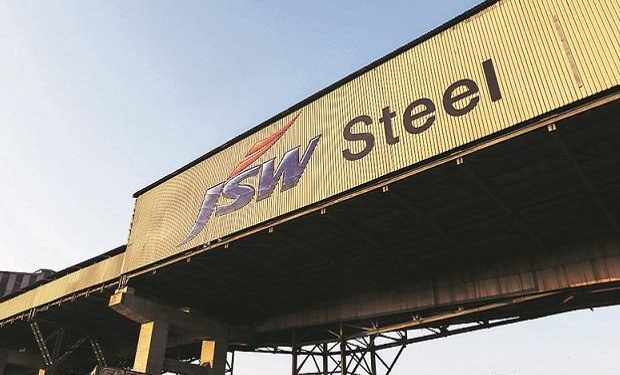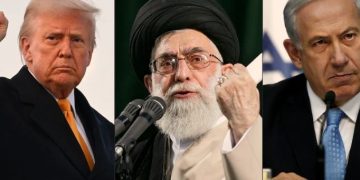New Delhi: Supreme Court Friday upheld JSW Steel’s Rs 19,700-crore resolution plan for debt-ridden Bhushan Power and Steel Limited (BPSL), bringing down curtains to a prolonged legal battle that spanned nearly eight years.
A bench comprising Chief Justice B R Gavai and Justices Satish Chandra Sharma and K Vinod Chandran upheld the February 17, 2020 verdict of the National Company Law Appellate Tribunal (NCLAT).
The NCLAT had allowed JSW Steel to acquire BPSL for Rs 19,700 crore by providing it immunity from prosecution by the Enforcement Directorate.
“We do not find any merit in the appeals. The appeals are therefore dismissed. The impugned judgment dated 17th February 2020 passed by the NCLAT is upheld,” CJI Gavai, who authored the 136-page judgment for the bench, held and dismissed challenges to the plan.
The court reserved its verdict August 11 on appeals filed by the former promoters and operational creditors of Bhushan Power and Steel Limited (BPSL) challenging the JSW Steel resolution plan.
A bench comprising former top court judge Justice Bela M Trivedi and Justice Satish Chandra Sharma May 2 had set aside a resolution plan of applicant JSW Steel Limited for BPSL, holding it illegal and in violation of the Insolvency and Bankruptcy Code (IBC).
The verdict was critical of the conduct of all key stakeholders in the resolution process, the resolution professional, the Committee of Creditors (CoC) and the National Company Law Tribunal (NCLT) for enabling what it termed a “flagrant violation” of the IBC.
The CJI-led bench later allowed the review pleas against the apex court’s verdict and decided to hear them in open court.
On July 31, the bench recalled the May 2 verdict that had ordered liquidation of BPSL while setting aside a resolution plan of JSW Steel Limited for the ailing firm.
The bench observed that the May 2 judgment, authored by Justice Trivedi did not “correctly consider the legal position in a series of judgments”.
One of the key issues was whether earnings before interest, tax, depreciation, and amortisation (EBITDA) generated during the resolution period should go to the creditors or remain with the company.
The CoC was seeking Rs 3,569 crore in EBITDA and Rs 2,500 crore in delay-related interest.
The CJI said, “Before we conclude the present matter, we may just point out the disastrous results which may have ensued in the event the contentions raised in the present appeals of the promoters-cum-directors of the Corporate Debtor were accepted or if the stand of the CoC with regard to EBITDA was accepted.”
The bench said the resolution applicants submitted their bids and the request for resolution plan does not provide for treatment of EBITDA.
“After a prolonged delay on account of a variety of reasons enumerated hereinabove, the Resolution Plan was implemented. The Corporate Debtor in the present case was running into substantial losses which has now become a profit-making entity earning substantial profits,” the verdict said.
It said JSW invested huge amounts in modernisation and expansion of corporate debtors.
“Not only that but thousands of employees have been earning their livelihood on account of the Corporate Debtor running as an on-going concern due to the Resolution Plan being implemented by the SRA – JSW. As such, the very purpose for which the IBC was enacted — namely, to ensure that the Corporate Debtor continues as a going concern — has not only been achieved, but the Corporate Debtor has been transformed from a loss-making to a profit-making entity,” it added.
If, after the implementation of the resolution plan, the JSW has converted a loss-making entity into the one making profits, can it be penalised for that, the verdict asked.
“Suppose instead of the corporate debtor being converted into a profit-making entity, the losses would have increased, can the Corporate Debtor claim refund of the amount paid? If we permit the claim not to be part of the Resolution Plan which has been approved by the CoC and the NCLT to be raised at such a belated stage, it could open a Pandora’s Box and the very purpose of the IBC providing sanctity to the finality of the Resolution Plan duly approved would stand vitiated,” it said.
The bench said this issue has already been decided already.
BPSL was among the 12 large corporate defaulters, often referred to as the RBI’s “dirty dozen” as identified in June 2017 for insolvency resolution.
With admitted claims of over Rs 47,000 crore from financial creditors and more than Rs 600 crore from operational creditors, the case soon became one of the largest insolvency proceedings in the country.
JSW Steel emerged as the highest evaluated bidder in October 2018 and subsequently secured approval from the CoC.
However, the resolution process became mired in litigation after investigative agencies, including the CBI and ED, initiated proceedings against BPSL and its promoters on allegations of fraud and money laundering.
In September 2019, the NCLT approved JSW’s plan subject to conditions, which were later modified by the NCLAT in February 2020.
Few appeals were followed and led to filing of pleas in the top court.
The SRA was represented by Karanjawala and co team comprising Nandini Gore and Tahira Karanjawala in the proceedings.
PTI






































